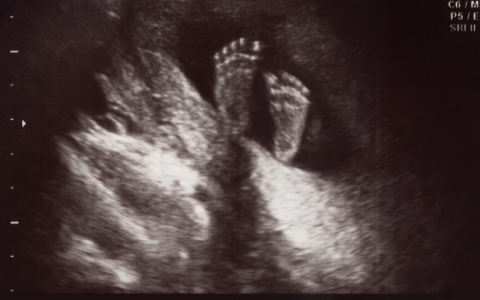Can Thyroid Abnormalities Cause Infertility?

The thyroid gland is located in the front of our neck, just below the Adam's apple, with one on each side. It is an endocrine organ that secretes thyroid hormones, primarily responsible for regulating metabolism and growth. Thyroid abnormalities include hyperthyroidism and hypothyroidism, which are typically detected either during routine health checks or when patients present symptoms and seek help from endocrinologists.
What are the symptoms of hyperthyroidism and hypothyroidism?
For example, patients with hyperthyroidism often exhibit nervousness, rapid heartbeat, palpitations, sensitivity to heat, weight loss, fatigue, weakness, trembling fingers, diarrhea, swollen thyroid gland (goiter), and protruding eyes (exophthalmos), while females may experience irregular or absent menstrual periods. On the other hand, patients with hypothyroidism commonly experience fatigue, weakness, weight gain, cold intolerance, dry skin, hair loss, lethargy, and in females, heavy menstrual periods.
How to Treat Thyroid Abnormalities
Thyroid abnormalities are autoimmune diseases that cannot be cured at present, and once the disease occurs, it can only be controlled as much as possible. General treatment methods include:
1. Oral Thyroid Medications: These medications work by inhibiting the synthesis of thyroid hormones, thereby achieving improvement. Generally, they start to take effect gradually after 2 to 3 weeks of use, and most patients can stop taking them after 1 to 1.5 years of treatment, with regular follow-up.
2. Beta-Blockers: These primarily help suppress tremors, rapid heartbeat, and palpitations. However, they are not suitable for individuals with a history of asthma.
3. Radioactive Iodine Therapy: This treatment involves the administration of radioactive iodine, which enters the thyroid gland and destroys thyroid tissue, thereby reducing hormone synthesis ability.
4. Thyroidectomy: For pregnant patients or those unable to tolerate oral thyroid medications and radioactive iodine therapy, partial thyroidectomy may be performed as a treatment option under the physician's judgment.
Daily Care for Patients with Thyroid Abnormalities
Patients with thyroid abnormalities need to pay special attention to their diet and lifestyle to prevent exacerbations. Here are some lifestyle adjustment suggestions:
- Avoid consuming iodine-rich foods such as kelp and seaweed.
- Avoid stimulating foods such as chili peppers, caffeinated tea, and coffee.
- Practice stress relief techniques as stress can trigger thyroid diseases.
- Engage in regular exercise to maintain normal muscle and cardiovascular function.
- Avoid smoking and alcohol consumption.
Can Thyroid Abnormalities Lead to Infertility?
The answer is affirmative! When hyperthyroidism occurs, it can affect the hormone secretion of the pituitary gland, potentially leading to anovulation, which naturally impedes conception. Hypothyroidism can cause an increase in thyroid hormones and prolactin, also possibly resulting in anovulation. For women with thyroid dysfunction who desire pregnancy, it is essential to seek professional medical advice to address the issue, restore menstrual regularity, and prevent miscarriages caused by thyroid imbalance during pregnancy.
Thyroid Abnormalities during Pregnancy Require Special Attention
Poorly controlled hyperthyroidism can lead to subsequent risks such as premature birth, miscarriage, and preeclampsia. In severe cases, it may even cause "thyroid storm" in late pregnancy, resulting in severe systemic metabolic abnormalities and life-threatening conditions. Excessive thyroid hormones can affect the fetus through the placenta, leading to conditions such as fetal tachycardia, intrauterine growth restriction, premature birth, fetal goiter, and hydrops fetalis.
On the other hand, hypothyroidism during pregnancy can increase the risk of premature birth, miscarriage, gestational hypertension, and placental function issues. Prolonged thyroid hormone deficiency during pregnancy can result in fetal growth restriction, cretinism, and intellectual developmental delays. It is crucial to confirm the need for adjustments in endocrine metabolism balance in the early stages of pregnancy.
To avoid the risk of teratogenicity from medication use in early pregnancy, it is essential to discuss and ensure safe medication with a physician.
RSMC in the United States: Fulfilling Your Dreams with 30 Years of Experience in Reproductive Medicine
In addition to state-of-the-art third-generation IVF, the United States is also a legal destination for third-party reproductive services, surrogacy, LGBTQ+ IVF, and single-parent IVF. RSMC boasts surrogate mothers from the top three legal fertility centers in the United States, as well as egg banks of various ethnicities, including a rich and high-quality Asian egg bank and sperm bank. RSMC has successfully helped tens of thousands of couples struggling with infertility and LGBTQ+ families achieve their dreams of parenthood. If you are interested in our services, feel free to inquire online with our 24/7 multilingual team: Line / WeChat: rsmctw or join WhatsApp: +1 858-342-6046 to start a conversation.

DR. DAVID HARARI
RSMC Director and Medical Group President
Dr. Harari earned his medical doctorate from the University of Georgia Medical Center, completed his internship at Georgia State Medical College, and subsequently finished his residency at Mercy Hospital Medical Center. With over 30 years of clinical experience, he currently serves as the President of the San Diego Obstetrics and Gynecology Association, boasting over 400 professional OB-GYN members. Dr. Harari respects each patient's individual preferences during the treatment process, providing them with the most professional treatment guidelines and working collaboratively to help them achieve their goals. He believes in the importance of open communication between the doctor and patient, willingly sharing his past medical experiences and offering the most professional medical advice.
Other
-
2025/03/13others
Can Vitiligo Be Cured With Reproductive Technology?
-
2025/02/24others
What are the reasons behind failed blastocyst culture?
-
2024/11/20others
A Must-Read for Expectant Mothers: All About Down Syndrome Screening!



